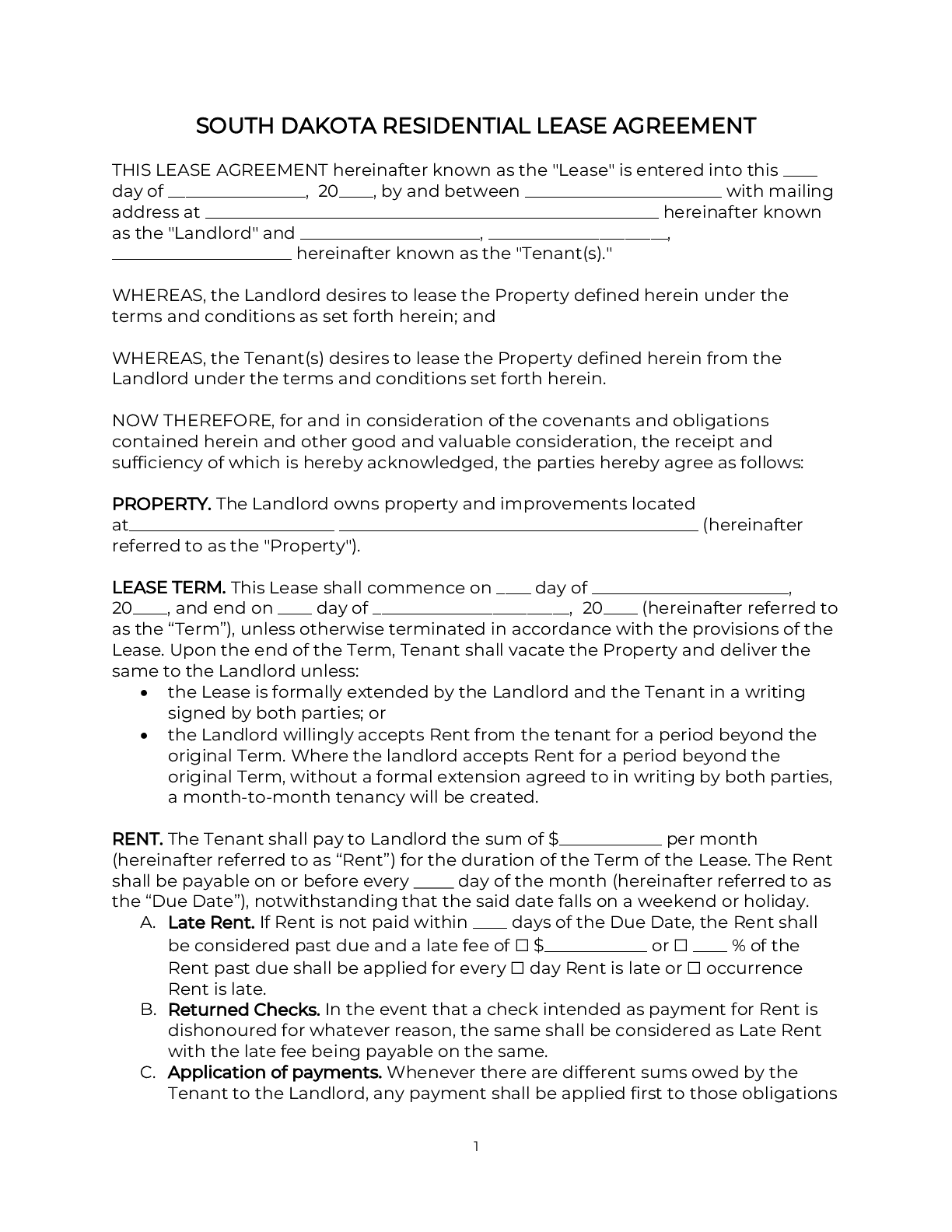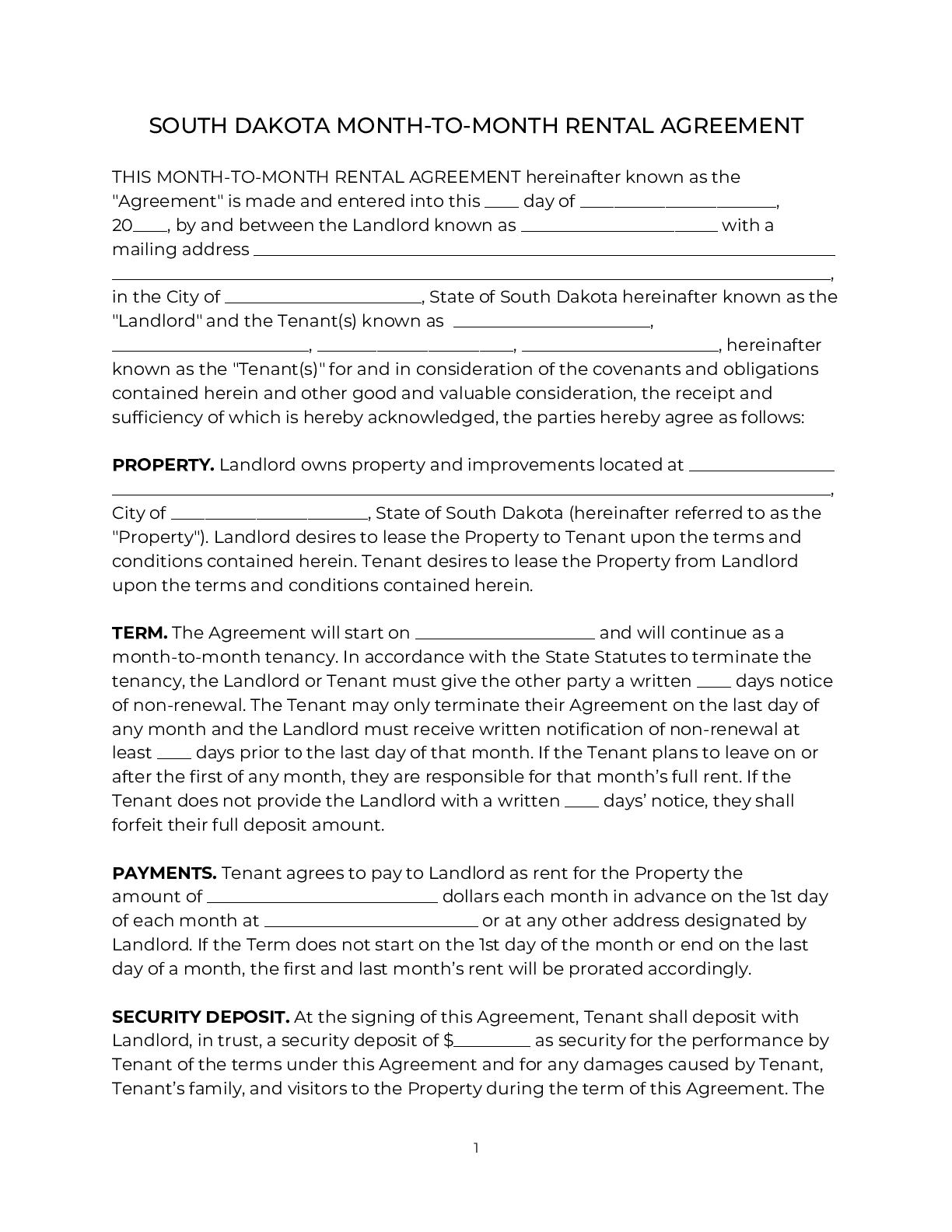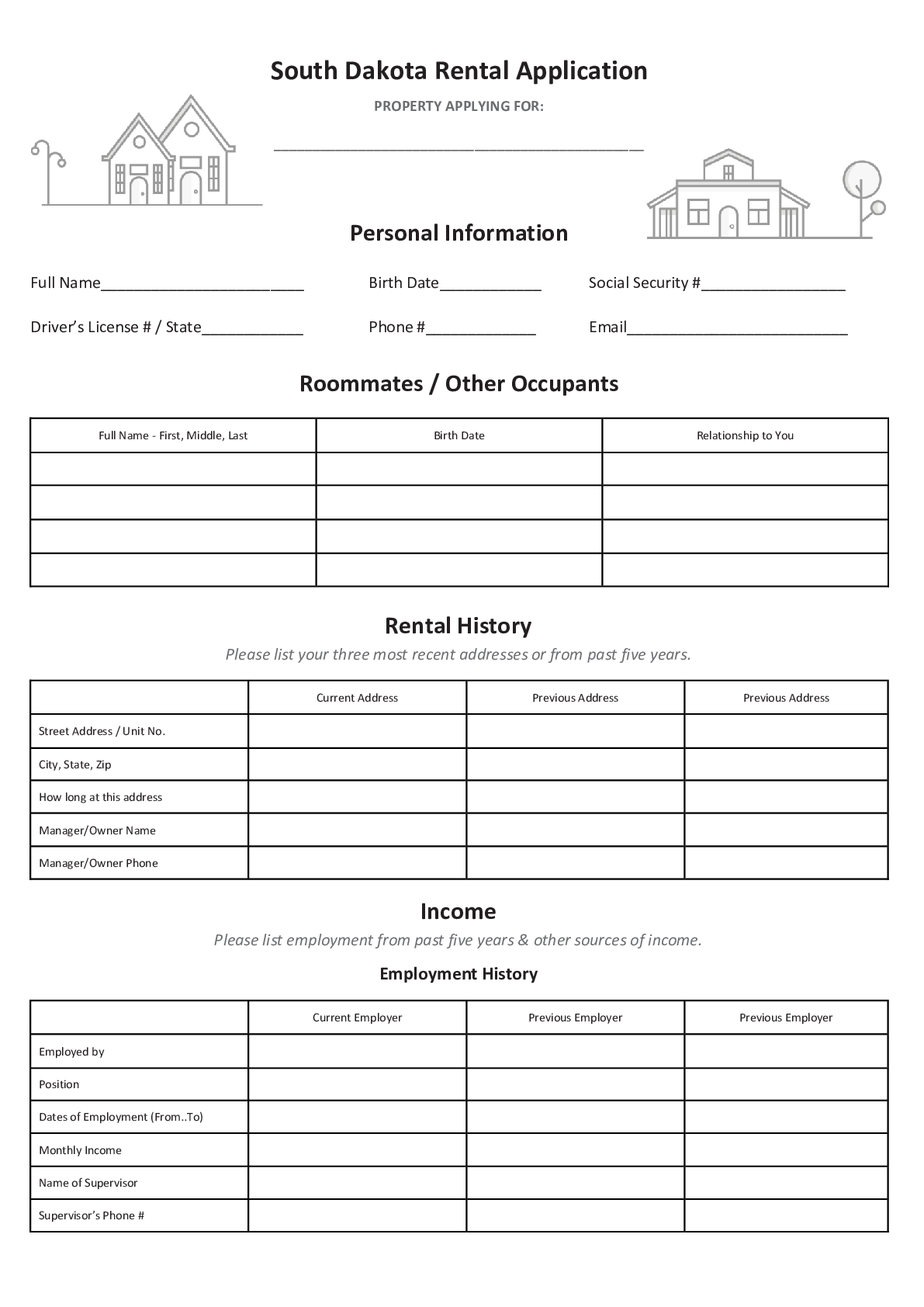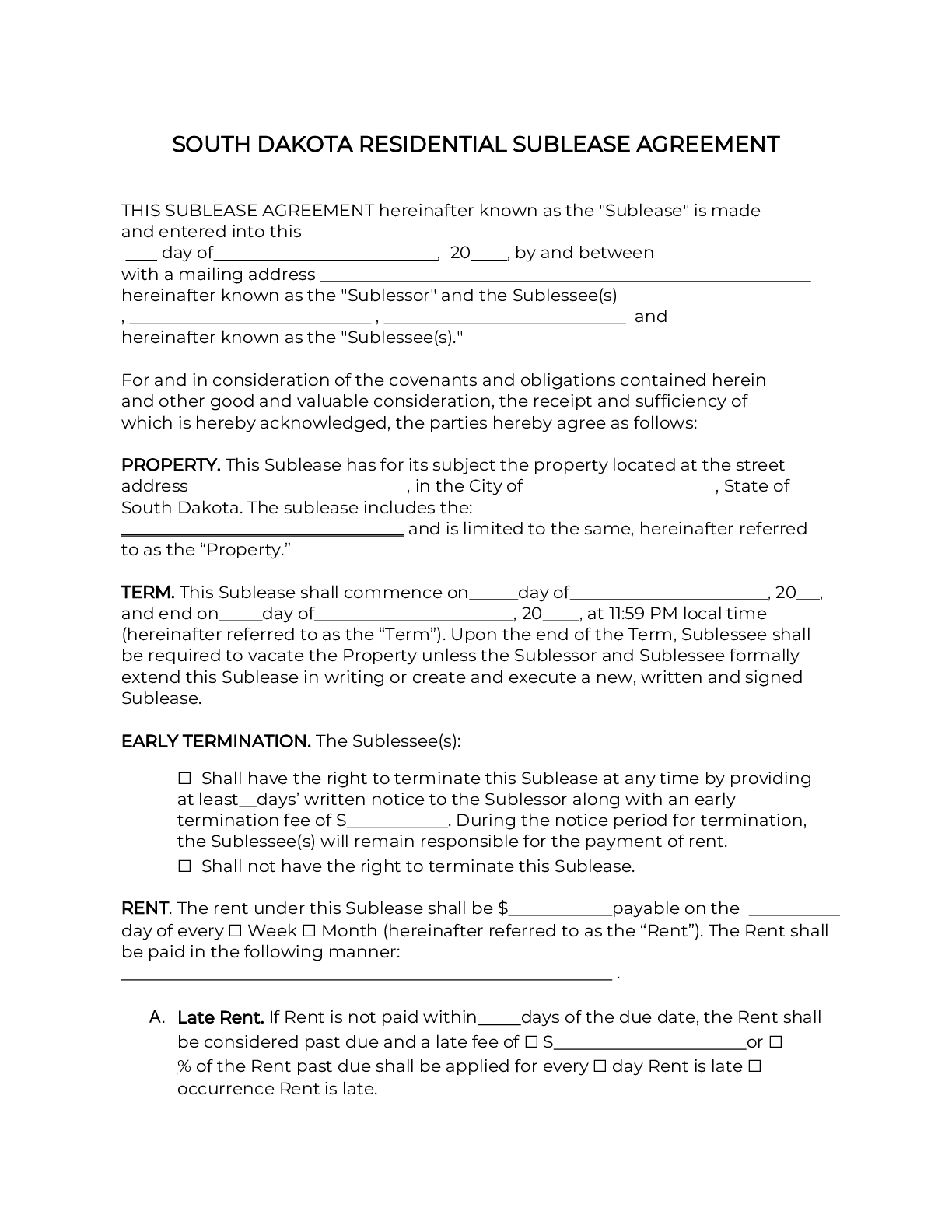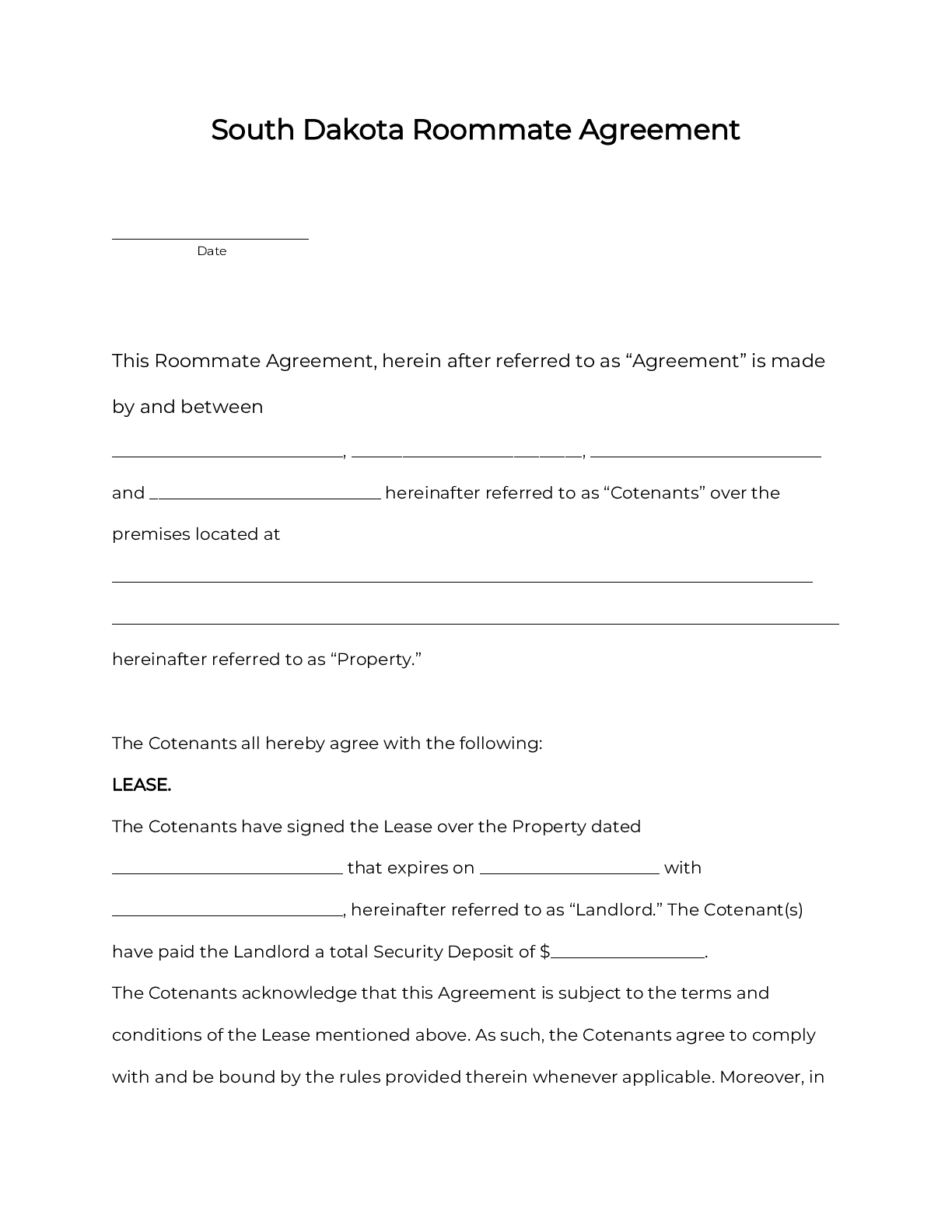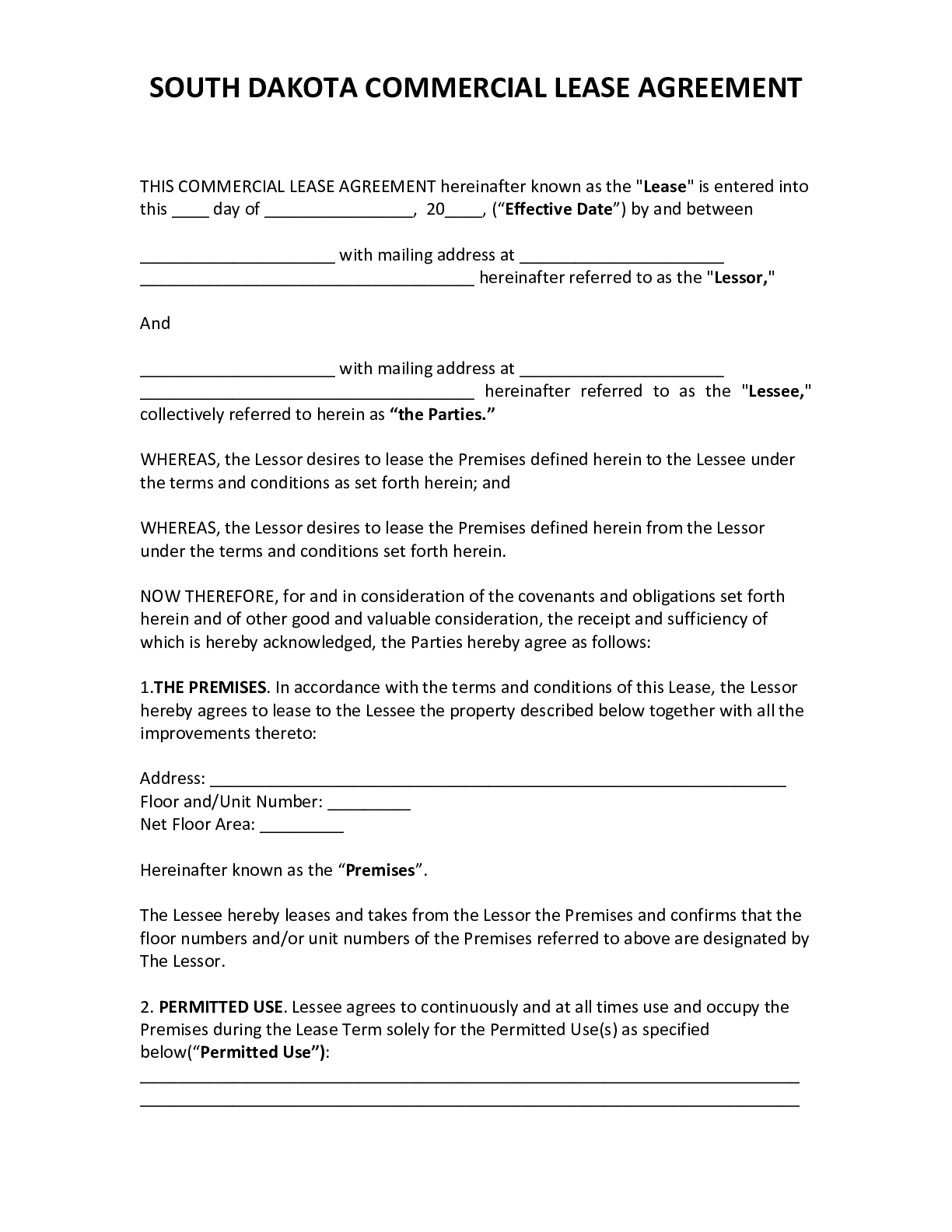A South Dakota rental agreement is a legal contract between a landlord overseeing a rental property and a tenant using the property. South Dakota landlord-tenant law governs and regulates these agreements.
South Dakota Rental Agreement Types
A South Dakota roommate agreement is a legal contract between two or more people (“co-tenants”) who share a rental property according to rules they set, including for things like splitting the rent. This agreement binds the co-tenants living together, and doesn’t include the landlord.
South Dakota Required Residential Lease Disclosures
- Methamphetamine Contamination Disclosure (required for some leases) – South Dakota landlords must disclose any known methamphetamine contamination that exists or may have existed on the rental property.
- Lead-Based Paint Disclosure (required for some leases) – Landlords must provide an EPA-approved disclosure and informational pamphlet to tenants renting any property built before 1978.
To learn more about required disclosures in South Dakota, click here.
South Dakota Landlord Tenant Laws
- Warranty of Habitability – South Dakota landlords can only rent out habitable property. This means providing certain basic health and safety features like heat, plumbing, and electricity. Landlords must repair any issues within a reasonable time. Failure to repair lets a tenant sue the landlord, repair and deduct, or terminate the lease.
- Evictions – South Dakota landlords may evict tenants for reasons like failure to pay rent, lease violations, or illegal acts. Eviction can’t proceed until the landlord serves advance notice to quit. The amount depends on the eviction type. An eviction in South Dakota usually takes from 5 weeks to 3 months.
- Security Deposits – South Dakota limits security deposits to 1 month’s rent unless the tenant gives written consent to a greater amount in the lease. When a lease ends, the landlord must return any unused portion of a tenant’s deposit within 14 days.
- Lease Termination – South Dakota tenants can end a month-to-month lease with 30 days of advance notice. Terminating a fixed-term lease early usually requires active military duty, landlord harassment, uninhabitable property, or domestic abuse.
- Rent Increases and Fees – South Dakota does not limit the amount or timing of a rent increase. There are no limits on late fees. Bounced check fees have a $60 limit.
- Landlord Entry – South Dakota landlords may enter rental property for reasonable business purposes, like repairs and inspections. Except in emergencies, the landlord must give at least 24 hours of advance notice.
- Settling Legal Disputes – South Dakota lets small claims courts hear landlord-tenant disputes. The amount in controversy must be under $12,000. South Dakota doesn’t allow eviction cases in small claims.
To learn more about landlord tenant laws in South Dakota, click here.
Sources
- 1 S.D. Cod. L. § 57A-3-421
-
If a merchant or place of business conspicuously posts a notice on its premises or if a merchant or place of business regularly extends credit and prints a notice on its customer statements of such size and location as to be conspicuous, stating that a fee will be assessed against returned checks, any person who issues a check or other draft to the merchant or place of business that is not honored for any of the following reasons upon presentment is liable for all reasonable costs and expenses of collection:(1) The drawer’s account is closed;(2) The drawer’s account does not have sufficient funds; or(3) The drawer does not have sufficient credit with the drawee.The costs and expenses provided for in this section are reasonable if they do not exceed sixty dollars plus any applicable sales tax.
Source Link




